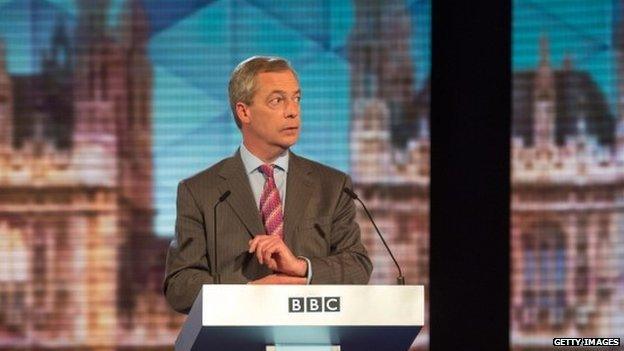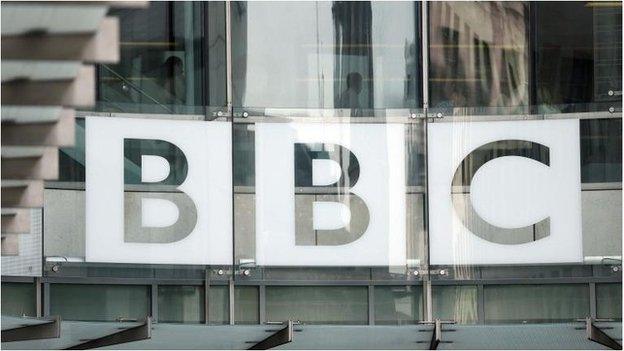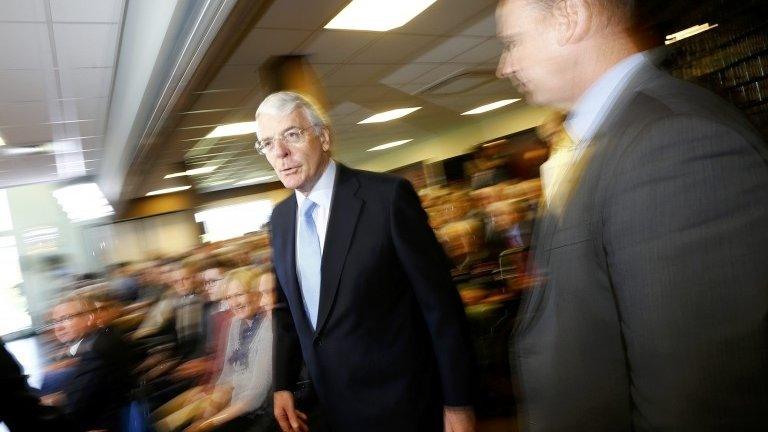UKIP: BBC licence fee should be cut by two thirds
- Published

The BBC should be "cut back to the bone" and the licence fee reduced by two thirds, according to Nigel Farage.
The UKIP leader told a public meeting in Rochester he believed the BBC should not be privatised but retained as a public service broadcaster.
His proposal would mean the current fee of £145.50 would be reduced to £48.50.
Some of the other parties have set out their plans for the licence fee in their manifestos, including the Conservatives and the Green Party.
Mr Farage said: "Do I think the BBC needs to involve itself and engage itself in many other fields of entertainment and sport, given the whole world has changed with cable television and satellite television? No.
"I would like to see the BBC cut back to the bone to be purely a public service broadcaster with an international reach, and I would have thought you could do that with a licence fee that was about a third of what it currently is."

The BBC's Robin Brant said while UKIP had committed to reviewing the licence fee, which comes up for renewal next year, this was the first time the leader had put a figure on it.
Last week Mr Farage accused the BBC of fielding what he called a "left-wing" audience in the TV debate between him and the leaders of Labour, the SNP, the Green Party and Plaid Cymru.
The Conservatives have said they would maintain a freeze on the fee, while the Green Party wants to abolish it and fund the BBC through general taxation.
Labour's manifesto says the party will ensure the BBC delivers value for money, while the Liberal Democrats say the fee should not rise faster than inflation.
The SNP says it wants a "fairer share" of the licence fee for BBC Scotland.
The licence fee was frozen until March 2017 under an agreement reached in 2010 between the broadcaster and the coalition government.
The current Royal Charter, through which the BBC is constituted and which guarantees its independence, expires at the end of 2016. The coalition government has delayed discussions about its renewal until after the election.
- Published21 April 2015
